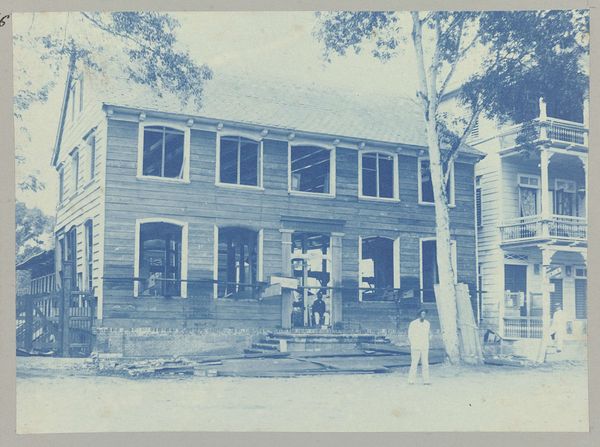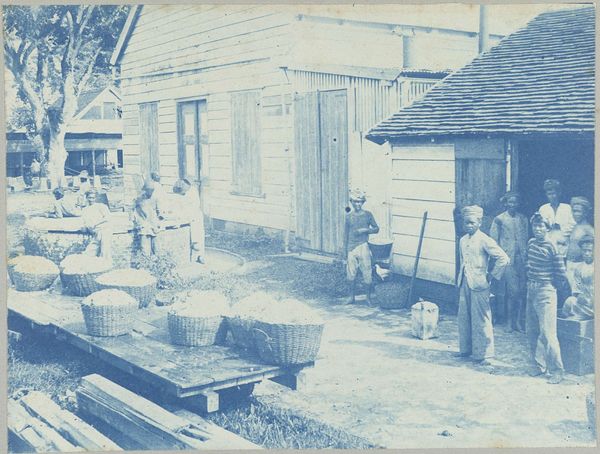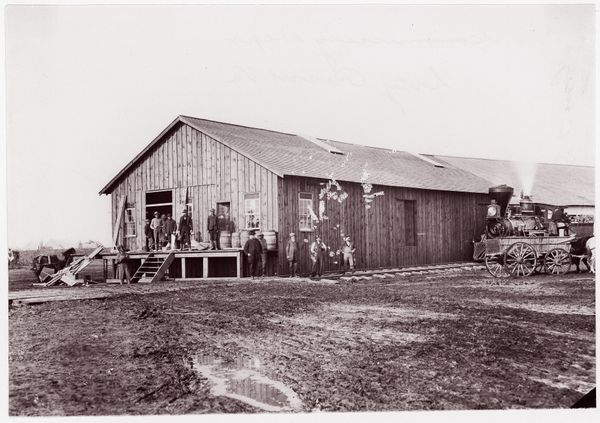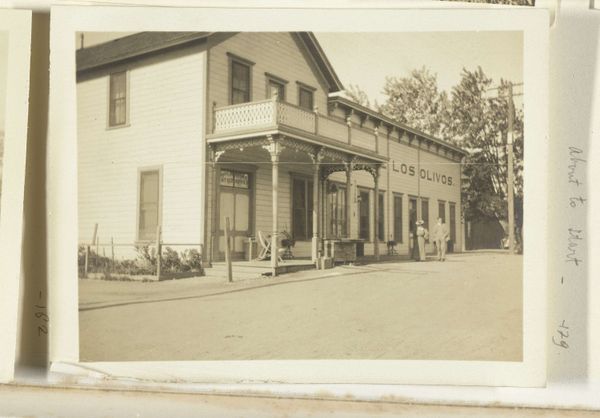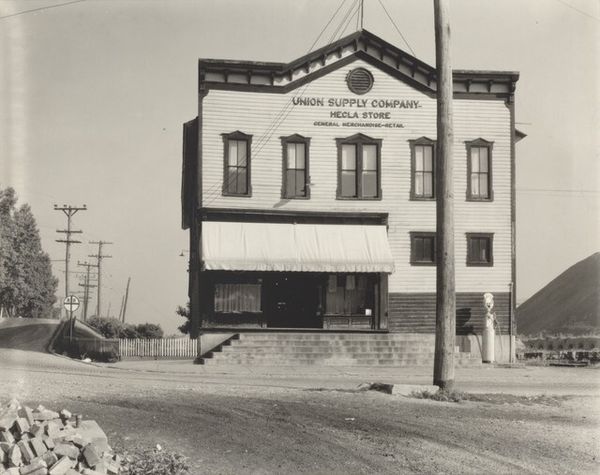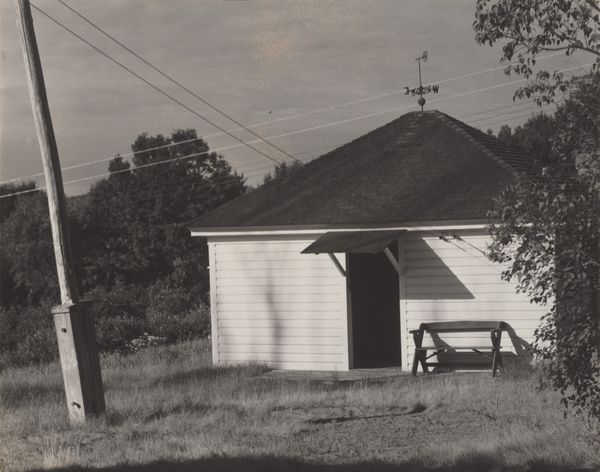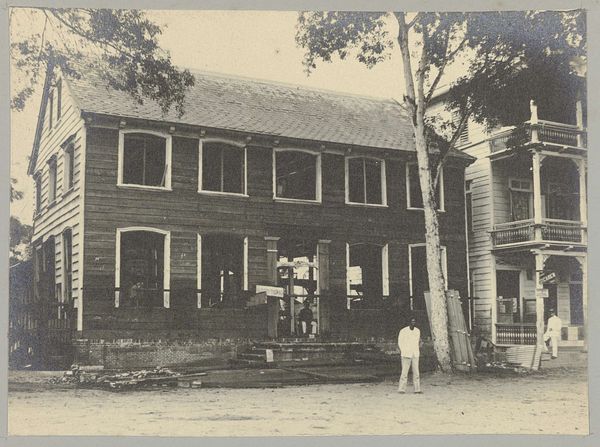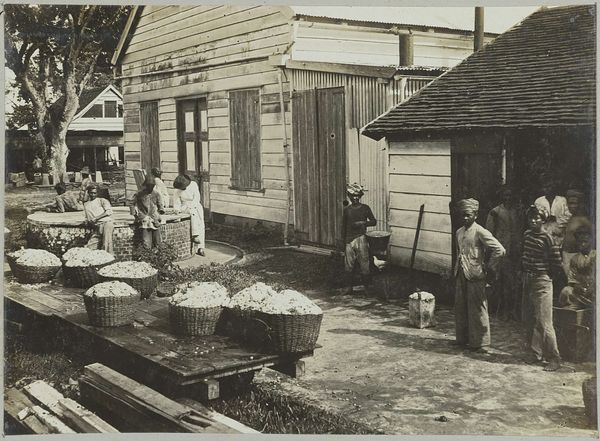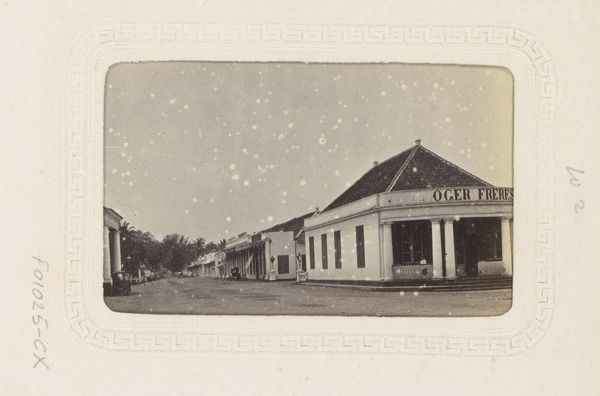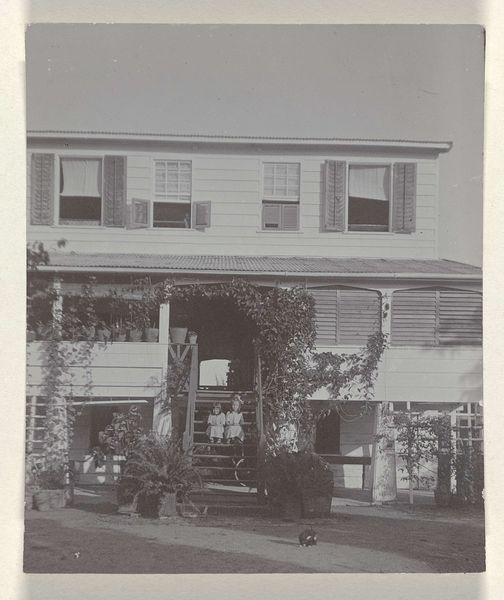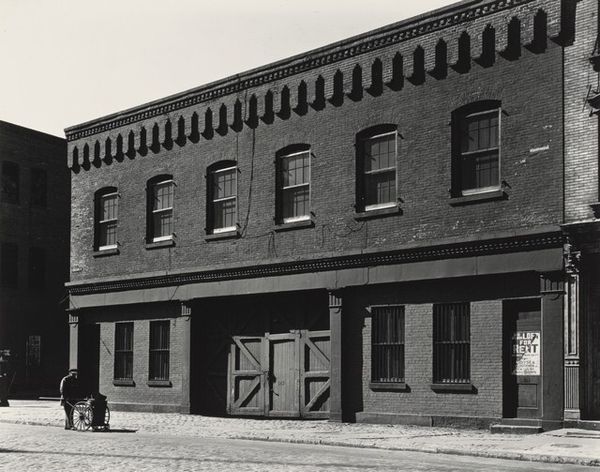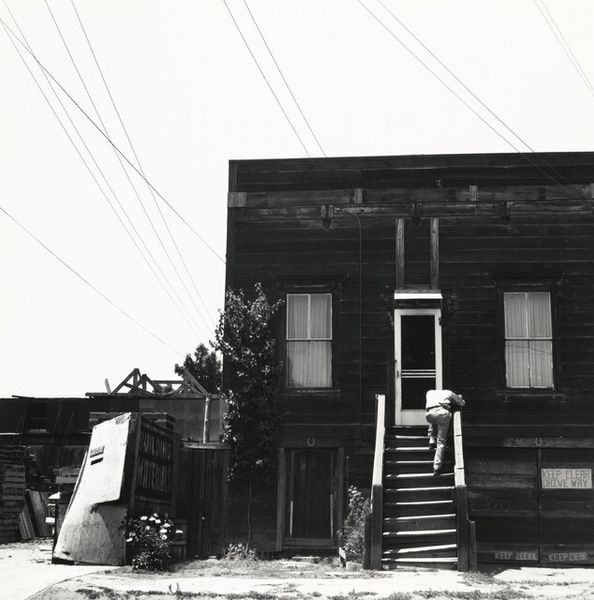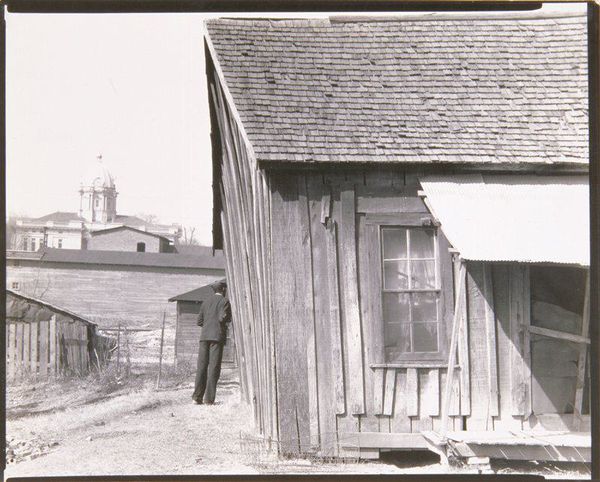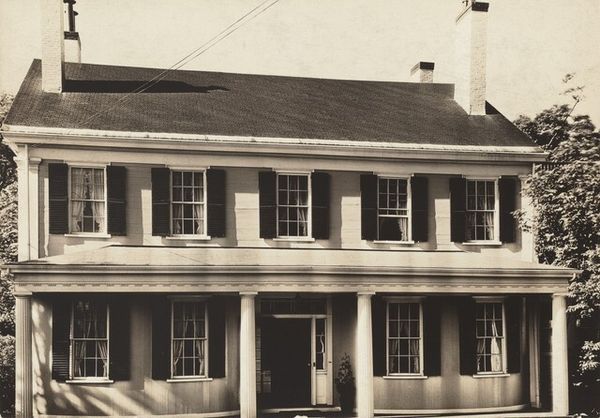
#
blue colours
#
green and blue tone
#
blue and white
#
blue toned
#
aquatic colour
#
aquatic colours
#
blue hue and tone
#
neutral blue colours
#
united-states
#
blue sky
#
green and blue
Dimensions: 3 5/8 x 4 3/4 in. (9.21 x 12.07 cm) (image)4 7/8 x 6 9/16 in. (12.38 x 16.67 cm) (mount)
Copyright: Public Domain
Editor: We’re looking at "J.S. Winterbottom Hardware Store," a cyanotype from around 1900. It gives the scene this overall blue tone. It seems like a straightforward image of a local business, but the color makes it feel like a dream. What jumps out to you? Curator: The cyanotype process itself speaks volumes. Predating widespread photographic colorization, its monochrome aesthetic emphasizes the constraints and creative choices of the era. How do we read this deliberate visual coding in relation to late 19th-century American society? The hardware store represents industry and growth, cornerstones of American expansion. Yet, who had access to that growth, and who was excluded? The presence of these men gathered in the doorway invites such questions of labor and social power. Editor: That’s fascinating! I hadn't thought about how the image-making process ties into societal power structures. Can you elaborate on the store's significance within its community? Curator: Certainly. The general store, in this case a hardware store, acted as a crucial social hub, especially in growing communities. Beyond commerce, they facilitated exchange of information, and perpetuated norms – who gets a loan, who is welcome to linger. By looking at whose stories are absent from the frame, we confront how photography can erase as much as it captures. Considering class, race, and gender during this period helps reveal this picture’s implied social dynamics. Editor: So, the seemingly simple image hints at broader societal issues of the time. Curator: Precisely. We can analyze art as evidence. This photograph isn't just documentation, it's a cultural artifact that engages complex narratives. Editor: I never thought I could learn so much about social structures from a hardware store photo. Thank you! Curator: The past always speaks to the present, if you know how to listen. It's about challenging dominant narratives.
Comments
No comments
Be the first to comment and join the conversation on the ultimate creative platform.
